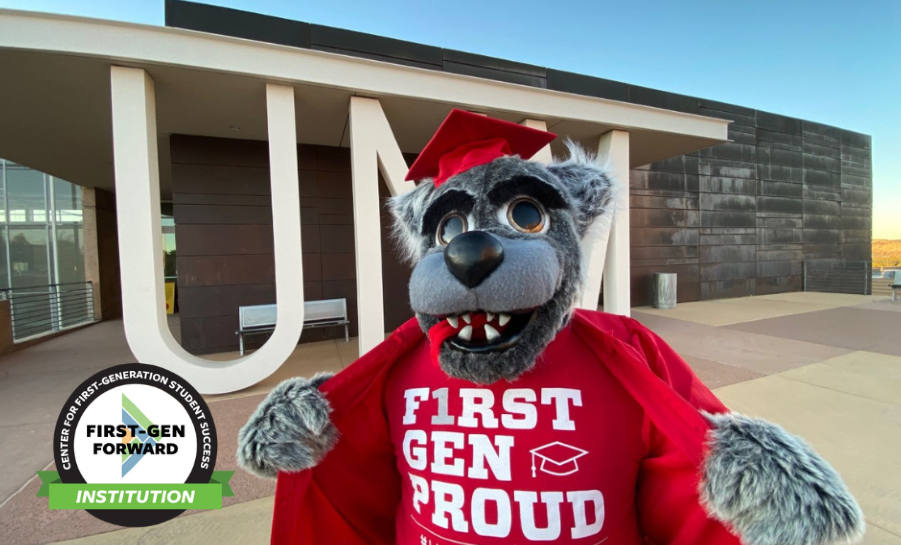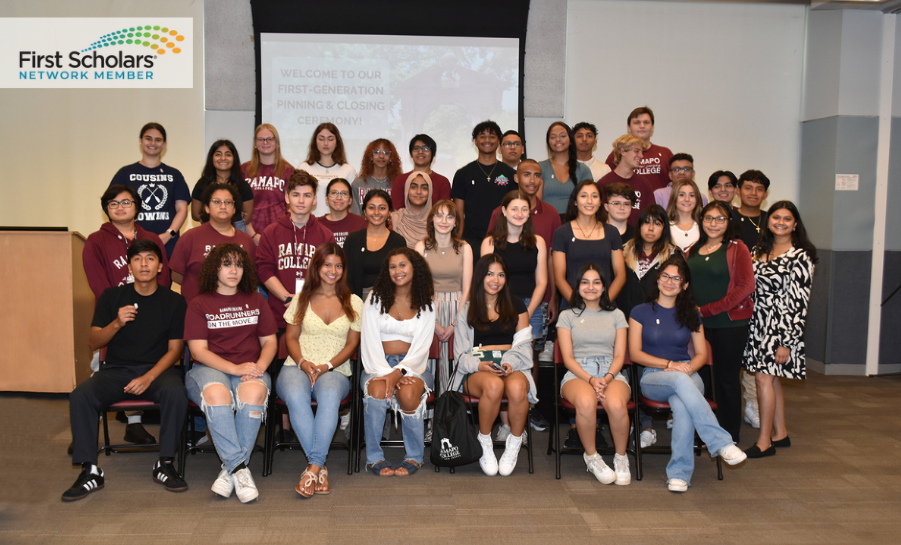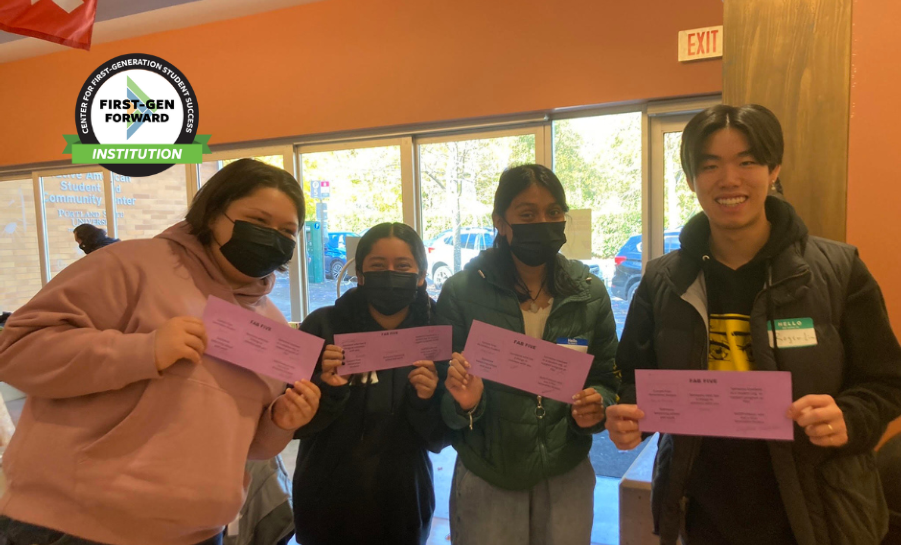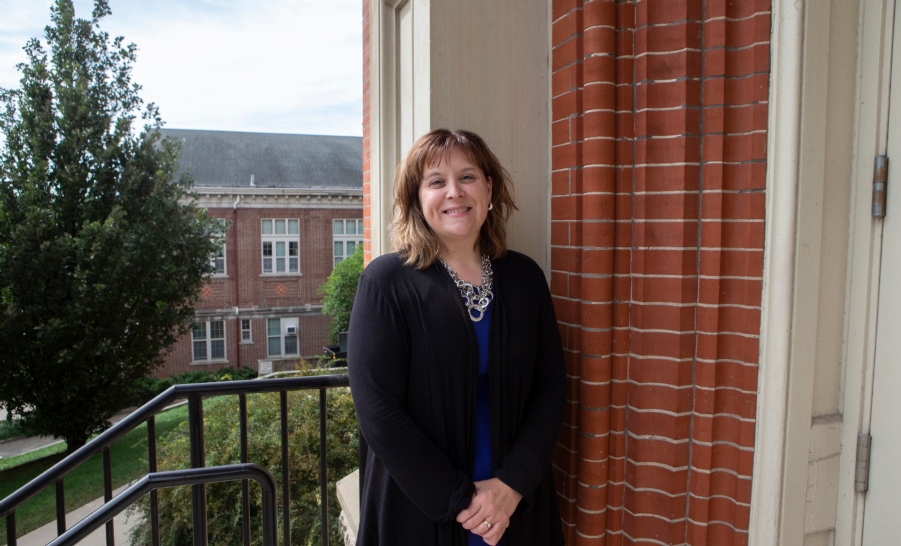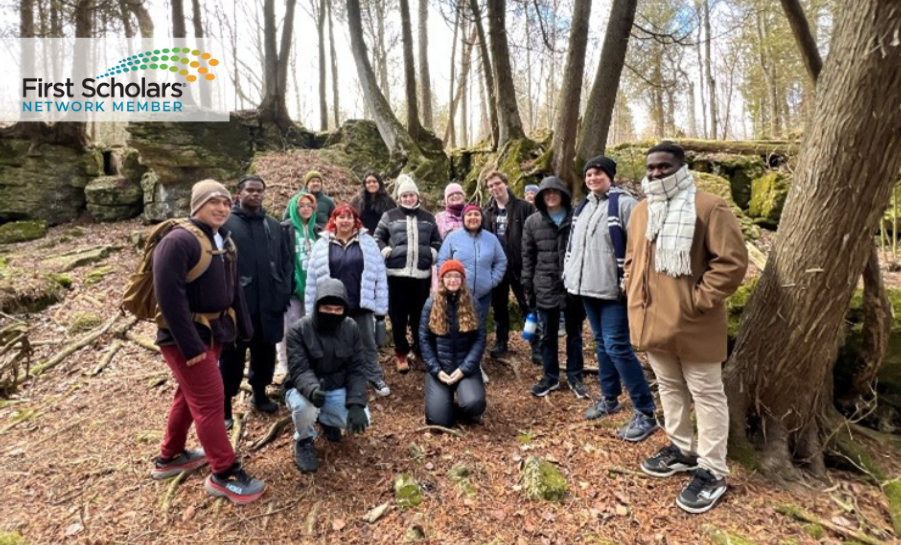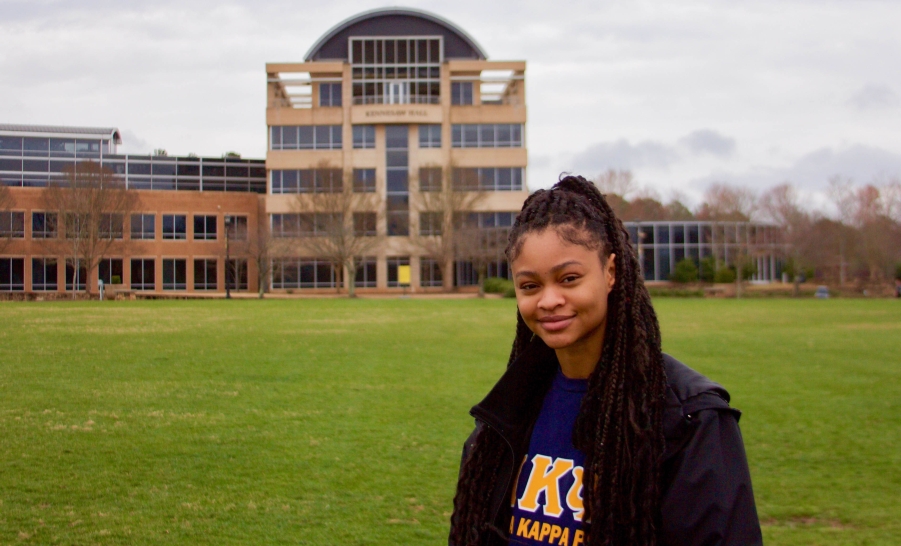Cultivating a supportive community that values and celebrates first-generation students at the University of Utah
Linda Paternina Serrano, University of Utah / FirstGen Forward / March 01, 2023
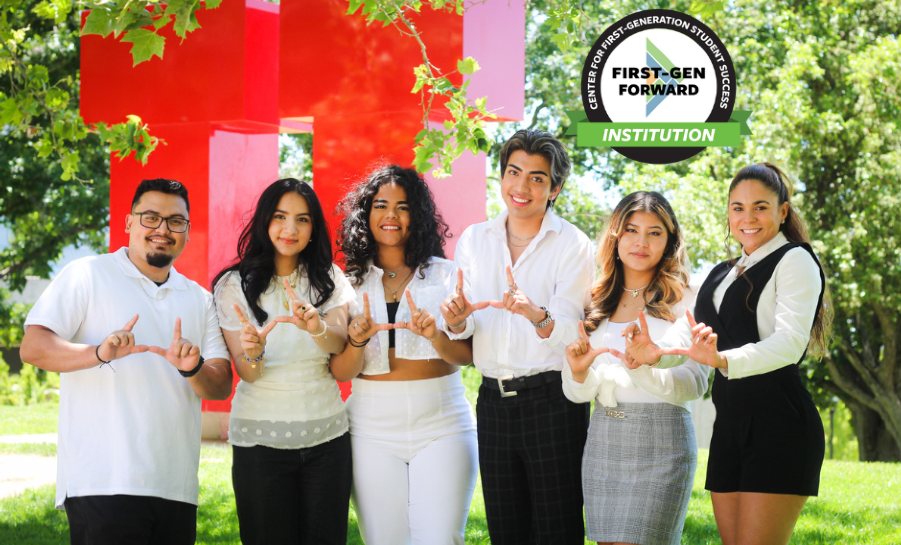
At the University of Utah, approximately 25% of our student body is first-generation, and we are keenly aware that the college experience for these students can be both exciting and overwhelming. For this reason, we have made intentional efforts to develop new initiatives to create a welcoming community for our first-gen students.
One of our most successful initiatives is the First-Gen Scholars (FGS) program. FGS is a multi-year cohort program designed to build a community of support for first-generation students at the U as they navigate the challenges of higher education. Additionally, the University of Utah is developing campus-wide efforts to build a supportive campus environment for first-generation students and provide resources to help them succeed.
The First-Gen Scholars program started ten years ago and began with only eleven students. Because the program was so small, students attended only a handful of activities – about one to two times per semester. We currently have two cohort classes with sixty students, each meeting weekly. Students enrolling in our cohort get a free-credit elective per semester. Our curriculum engages first-gen students in a program designed to increase personal and professional skill development, build supportive relationships, and manage stress and academic pressure.
Our programs support first-gen students by providing:
• A built-in community that offers friendship and a place where they feel they can belong
• Free-course credit (one credit per semester)
• Peer education and support
• Holistic support from first-gen staff, mentors, and an embedded librarian
• Opportunities to engage in leadership responsibilities that enrich students’ educational careers
• Scholarship opportunities
We have served 920 first-generation students at the University of Utah since the program began, with 86% of our students graduating.
YOU BELONG HERE!
FGS focuses on creating programming that is developed for students by students. Yearly, we hire a student leadership team and collaborate with them to tailor the program curriculum to the current students’ needs. Furthermore, our unique approach has helped us become one of the most well-regarded programs on campus. Our peer mentorship system ensures that every incoming FGS student has a peer mentor from the first day of their academic year. The system we developed in our cohort classes allows students to create “family” bonds that go beyond peer-to-peer guidance.
”Family” ties that increase persistence
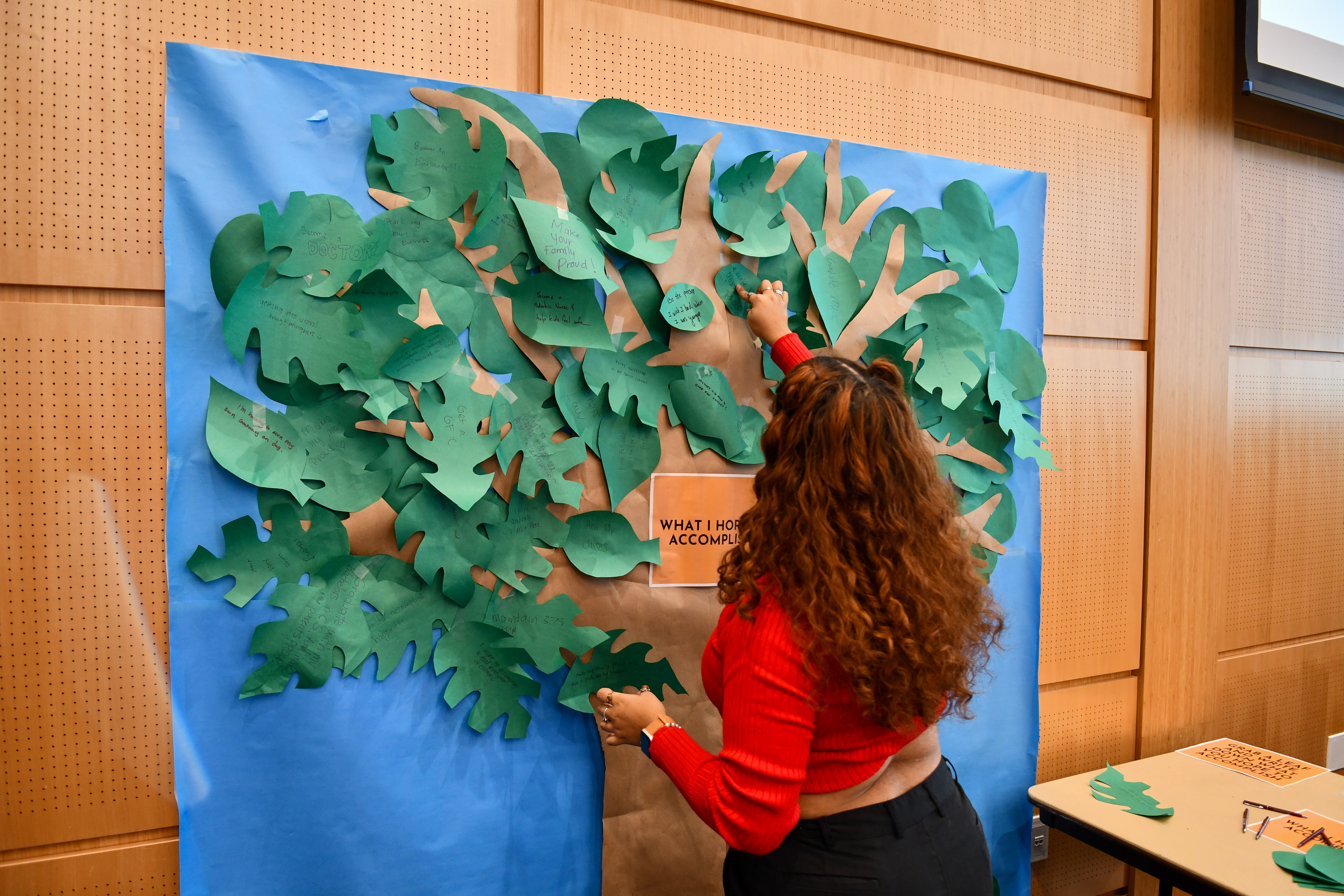

I am the current Associate Director of First-Gen Programs and as an international, first-generation student, one of the things that were the hardest for me when I started my path in higher education was to find “my people.” I felt isolated most of the time. I had a mentor, but we only met sporadically, and connecting beyond a professional level was not the goal. I always missed the support system I had back home in Colombia, from my loved ones who have always rooted for me. As a result, when I started building the First Gen Scholars Program structure, I wanted to ensure our students would have multiple ways to connect with their peers in class. My goal was to help students find their own families on campus – --a family of peers who will not only guide them through their academic endeavors but also provide them with a caring and authentic support system.
Students in our cohorts have distinct roles within our class. We employ both student leaders and mentors. These student positions are held by non-first-year students, who are ready to be part of an active support system that benefits first-year students. During the first two weeks of classes, we offer different opportunities for our students to engage in meaningful conversations where they get to know each other. After these two weeks, first-year students can choose whom they feel most connected with, and then we start structuring families within our class depending on these connections. Each family consists of two to three mentors, four to five mentees (first-years), and three to four independents, which are upperclassmen in the cohort. Throughout the academic year, we incentivize family members to engage in meaningful activities in and outside of class. This structure has given our students a sense of home away from home on campus. They feel connected to the institution through their peers who are here for their success and walking alongside them to achieve that graduation day. Here are some comments from our students about their experiences in the program.
“FGS has given me a sense of belonging and a conviction that I deserve to be here. The program has surrounded me with people that support me and are here on campus to see me succeed. This is my family on campus.” – Undergraduate student, Leonardo Cedeno
“I have been able to make more connections with people that I thought I would never meet here in Utah. Being away from home has been hard but the families that we have in this class have impacted me a lot and I am forever thankful for this class.” - Undergraduate student, Jazmin Miramontes
Establishing a campus-wide tradition
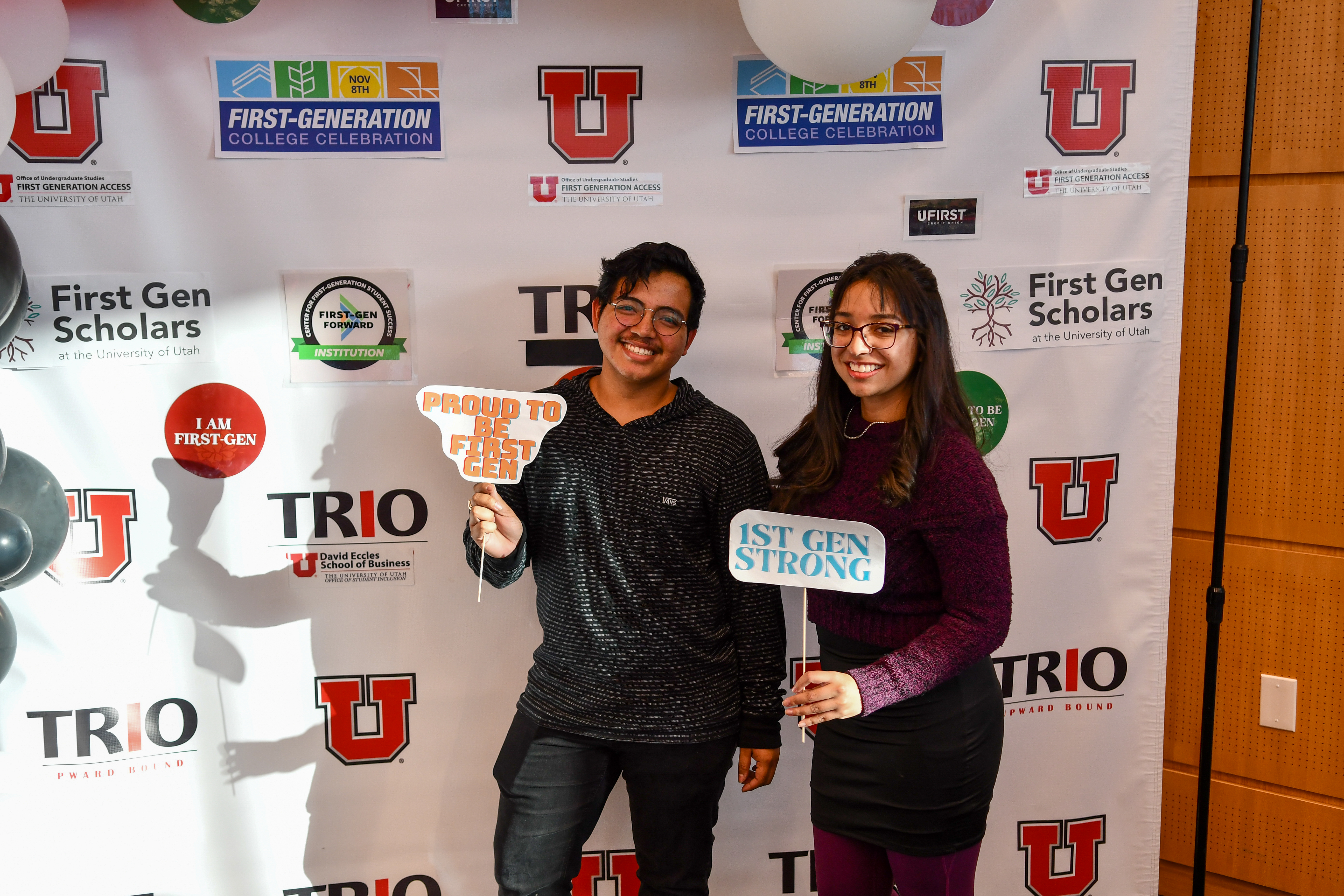
In 2022, we partnered with TRIO Student Support Services and put together events for the National First-Generation Celebration Day on November 8th that occurred throughout the week. The 2022 event was one of our biggest celebrations ever for first-gen students. We invited first-gen faculty and staff to join us for a networking dinner with first-gen students. Throughout the dinner, students were able to converse with first-generation faculty and staff in “speed-dating-style” conversations, moving from table to table until they had connected with a selection of different mentors with a broad spectrum of expertise. Students had the opportunity to learn about the challenges faculty and staff members experienced in college and how they overcame them. Additionally, we displayed first-generation students’ successful stories around campus in a way to celebrate their resiliency.
For our biggest event of the week, we created a First-Gen Fest, where we invited various on-campus organizations to talk with students about services and resources around campus. We also created interactive activities for students to participate in at the event. We filled the room with students and campus partners who enthusiastically enjoyed the opportunity to network with peers and amazing resource opportunities. We had a total of 465 attendees in our week of activities.
Since 2019, FGS has partnered with the J. Willard Marriott Library to present the Annual First-Gen Con. This is a free, one-day event where first-generation students and first-generation higher education professionals collaborate to share their experiences, concerns, initiatives, and accomplishments related to supporting first-generation success. The conference format is designed to be different from the standard conference model in terms of tone and level of formality. Among other things, First-Gen Con is conversational, interactive, and more casual than formal. Presenters cover a full spectrum of topics--from how to engage campus resources, services, and spaces to how to overcome barriers inside the institution, how to cope with imposter syndrome, how to find community on a large commuter campus, how being first-generation impacts teaching at the U, and strategies for faculty and staff to cultivate first-generation success. This year, our First-Gen Con is scheduled to occur on April 14, 2023.
Moving forward
Strategic action is needed to centralize efforts and expand visibility to continue building a first-gen campus identity and making a stronger community at the University of Utah. Applying for and earning the designation of a First-Gen Forward Institution in 2022 has garnered widespread discussion on the first-gen identity. Currently, at the U, first-gen efforts are plentiful across campus, with various departmental initiatives providing support. Although abundant, all resources are not advertised the same way to all students, and resources can feel siloed across our large campus. A centralized, first-gen center is an important conduit in bridging these efforts across the institution. A center will put the U of U’s first-gen initiatives in one location and provide greater access to information for U of U’s 8,700+ first-gen students, their families, and other contributors to their success.
